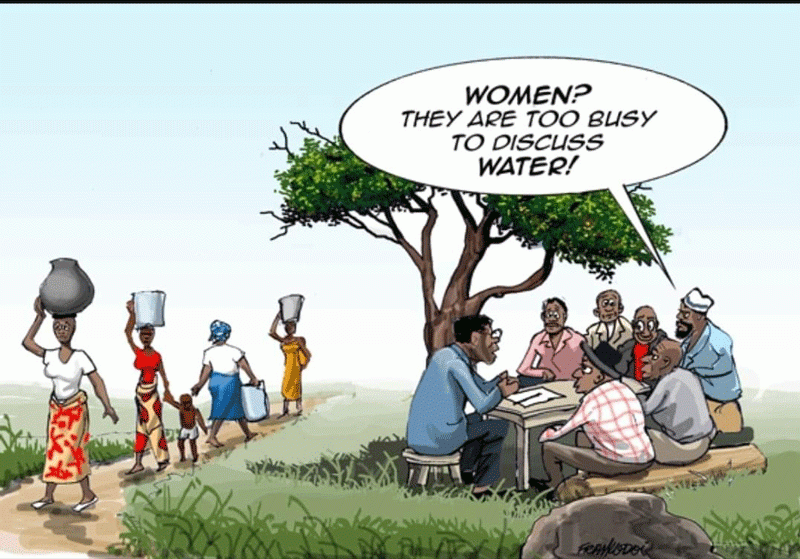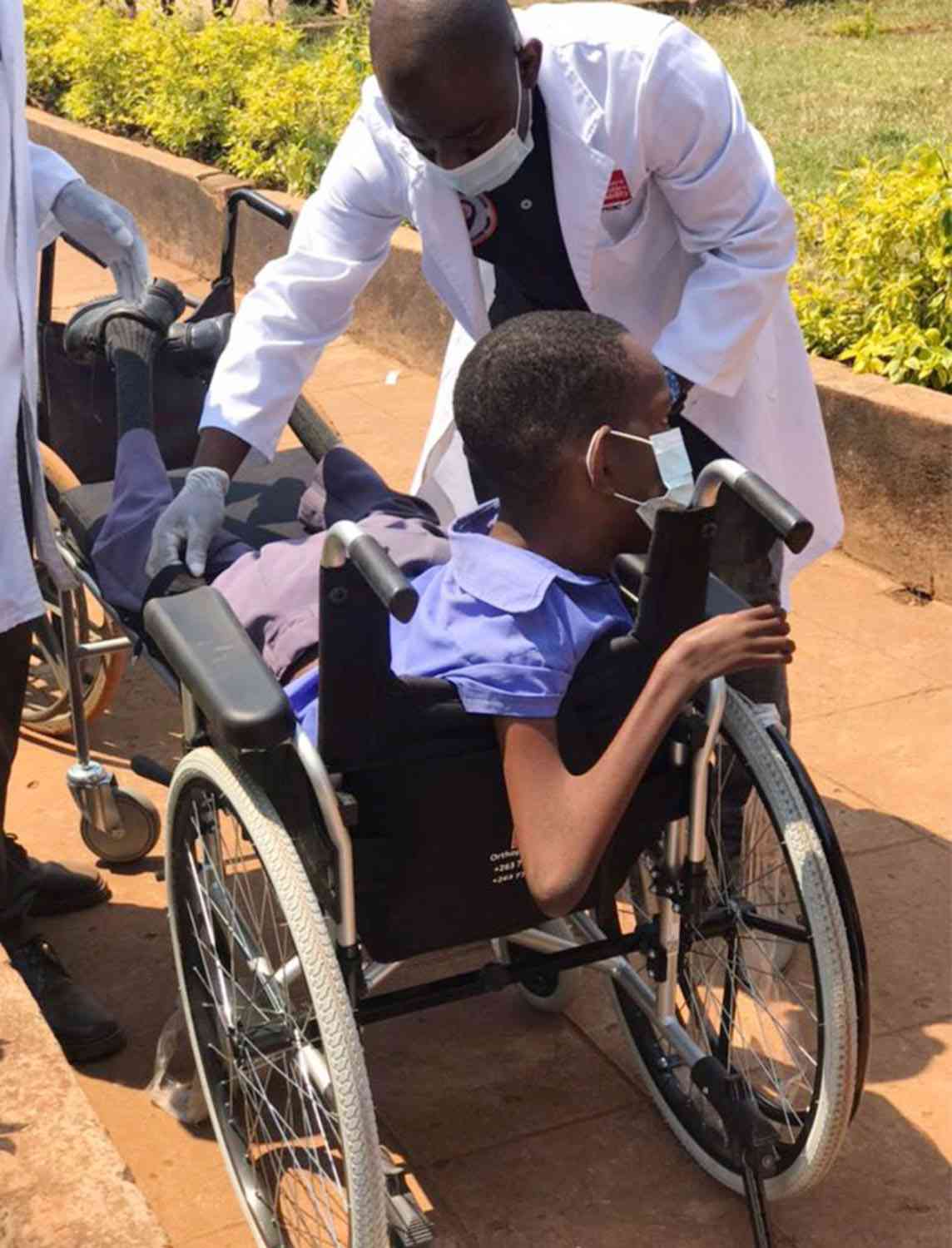
Poverty has ravaged the livelihoods of thousands if not millions of people across the globe. In its nature, it is the scarcity of a particular basic need for example food, water, shelter and adequate healthcare. As such it is important to note that poverty presents itself in various forms and to different people in all strata. There is food poverty, love deprivation, water scarcity and many others. Food poverty is the most prevalent with the rest afore mentioned following not so far behind.
There is a nexus between poverty and inequality where lack comes in as a result of the poor distribution of resources both at individual and national levels. Hunger has become the most common type of poverty with statistics running very high in the third world countries. According to study, approximately 349 million people are facing food insecurity in Zimbabwe, 75% of the people in Zimbabwe are reported to be food insecure and living under the poverty datum line.
The most affected are women and children. Poverty is not by choice, but in most cases, it is infringed on women due to inequalities in access to education and production sectors. 52% of the population in Zimbabwe (census 2012) is comprised of women, and yet they fall short in decision making processes, and dominate as the poverty-stricken group. Women often have to engage in unpaid care work and in instances where they do have employment, they are usually overworked and underpaid with menial positions that do not offer security or prospect of adequate sustenance in the future.
In the country, food and water have been exacerbated by the change in the rain cycle.
Agricultural production has deteriorated as a result of global warming and the country which once was the bread basket of Africa finds itself with little reserves that do not cater for all. Inequalities ultimately arise as different classes get access to the available food, with the poor getting the bitter end of the stick. Gender inequalities also come into play pushing women further into hunger and lack. Statistics show that (GPI)71% of the people do not have access to clean, potable and safe drinking water and are suffering from water poverty. The Global Peace Index shows that approximately 1,4 billion people across the divide are experiencing water stress.
Relatively, these statistics by all means include the Zimbabwean society with areas such as Harare, Bulawayo, Gweru and most major cities failing to provide clean drinkable water. Reports on sewerage infilled tap water being have been recorded in most of these areas. This has forced people to resort to buying drinking water, and still the old woman with no family to depend on, the jobless middle-aged woman with a house full of children and the high school dropout youth cannot afford.
Cases of children who turn to the streets in search for food either in bins or as vagabonds has also increased as a result of poverty and most of the poor parents, due to lack of job opportunities within the country leave their children and spouses in search for greener pastures, leaving children susceptible to hunger. In instances where parents are around, they are usually unemployed, with large families that they cannot fend for sufficiently.
The separation in recent times has seen a new type of poverty arising. Love poverty. As couples live separately, physiological needs are neglected and mental unwellness begins.
- Mavhunga puts DeMbare into Chibuku quarterfinals
- Bulls to charge into Zimbabwe gold stocks
- Ndiraya concerned as goals dry up
- Letters: How solar power is transforming African farms
Keep Reading
According to experts, (medical), Maslow’s hierarchy of needs, that shows that humans thrive on compassion and are skin sensitive, and any lack of physical contact can disrupt the manner in which individuals, couples, communities and ultimately nations function, is indeed correct.
When spouses separate, and there is prolonged lack of conjugal activities, love poverty takes over and the lack translates to raised tempers, feuds and ultimately break downs that pushes families into further distress.
These fissures also pave way to the increasing cases of children being raped and molested by close parents or relatives who would be going through sexual frustration.
At national levels, poverty also presents itself politically, when there are no proper channels and policies that protect the interests of the citizens. Leaders may proffer democracy and yet fail to deliver in practice. Also, lack of strong opposition parties that have clear doctrines and ideology makes the political system weak and fracture lines within national decisions present themselves.
Political poverty is detrimental to citizens as it leads to endorsements of unconstitutional decisions which could easily be classified as dictatorship. The rise and formation of small power-hungry oppositions only serve as evidence of the lack of trust in the Government and its policies.
Political poverty has a direct nexus to economic poverty. This is when decisions of who gets what, when and how, affect the economy causing imbalances. The value of the local currency begins falling and option is given to foreign currencies, like the United States Dollar, the South African Rand etc. The desperation that comes with the lack of access to financial cash resources leads to state panic which then creates unjust agreements, that do not favour the masses.
Radom debt contractions that are not explained and often odious, are a result of such poverty. We also have the elite becoming greedy and imposing mechanisms that bleed the citizens dry in the form of taxes.
While taxes are not entirely bad as the contribute to the national purse, they do not have to keep-on accumulating to extents where the poor have no prospect or hope for a better tomorrow. Tax evasions, illicit financial flows, abuse of natural governance also weaken the economy.
Given that we have already established that Zimbabwe can be identified hosting a lot of poverty stricken people, one would only imagine the amount of stress the country has suffered for example after the expose of the gold mafia scandal, the recent bust of a syndicate in Bikita with 14 tonnes of Lithium and the number of properties the daughter of the Late president claimed as personal property. In the light of this, the masses lose faith in the leadership and cower from taking part in policy formulation processes because they fear the power exposed by the elites who dominate the spaces.
At the end of the day, this circles back to the household problems indicated earlier on, increased poverty and a wider inequality gap. It is therefore important for awareness to be raised on the reparations of not paying attention to self, family and the community in order to identify where one lacks and how they can be assisted. At national level, the need to encourage citizens to take part in initiatives that make them be involved in decision making processes.
This allows for the involvement of all in the formulation of policies that are pro- poor and have a human face, which ultimately eradicates poverty. Civil Society Organizations should also take upon the mandate to capacitate the citizens on the need to have them speak up for themselves, and understand the aid or assistance from the west is just but a systematic destabilisation of resource rich African nations and giving the impression that Africa is poor.
Honesty, transparency, and accountability should be the foundation pillars of policies and conduct that govern any progressive, poverty free nation. Zimbabwe can withstand and eventually erase the said, if its people are involved.
- Millin is a Social and Economic Justice Ambassador. These weekly New Horizon articles, published in the Zimbabwe Independent, are coordinated by Lovemore Kadenge, an independent consultant, managing consultant of Zawale Consultants (Pvt) Ltd, past president of the Zimbabwe Economics Society and past president of the Chartered Governance & Accountancy Institute in Zimbabwe (CGI Zimbabwe). — [email protected] or mobile: +263 772 382 852.










